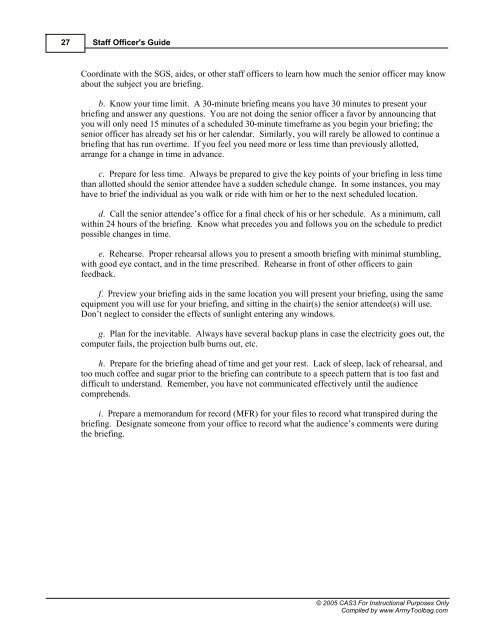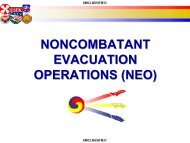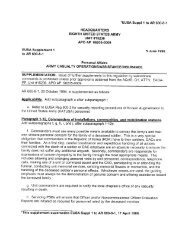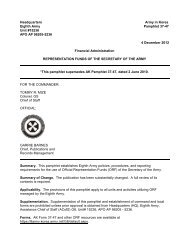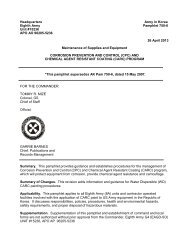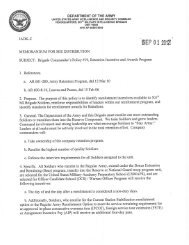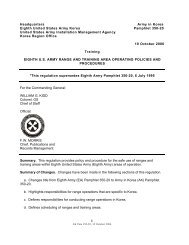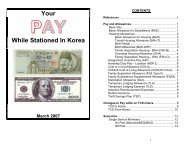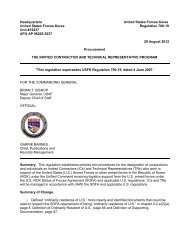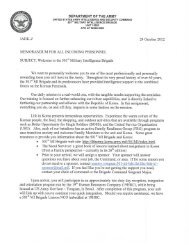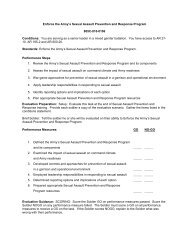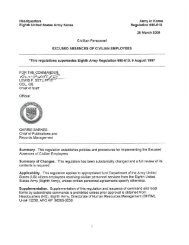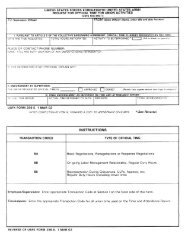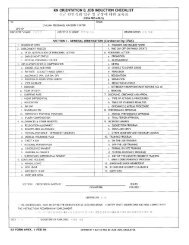CAS3 Staff Officer Guide - U.S. Army
CAS3 Staff Officer Guide - U.S. Army
CAS3 Staff Officer Guide - U.S. Army
You also want an ePaper? Increase the reach of your titles
YUMPU automatically turns print PDFs into web optimized ePapers that Google loves.
27<br />
<strong>Staff</strong> <strong>Officer</strong>'s <strong>Guide</strong><br />
Coordinate with the SGS, aides, or other staff officers to learn how much the senior officer may know<br />
about the subject you are briefing.<br />
b. Know your time limit. A 30-minute briefing means you have 30 minutes to present your<br />
briefing and answer any questions. You are not doing the senior officer a favor by announcing that<br />
you will only need 15 minutes of a scheduled 30-minute timeframe as you begin your briefing; the<br />
senior officer has already set his or her calendar. Similarly, you will rarely be allowed to continue a<br />
briefing that has run overtime. If you feel you need more or less time than previously allotted,<br />
arrange for a change in time in advance.<br />
c. Prepare for less time. Always be prepared to give the key points of your briefing in less time<br />
than allotted should the senior attendee have a sudden schedule change. In some instances, you may<br />
have to brief the individual as you walk or ride with him or her to the next scheduled location.<br />
d. Call the senior attendee’s office for a final check of his or her schedule. As a minimum, call<br />
within 24 hours of the briefing. Know what precedes you and follows you on the schedule to predict<br />
possible changes in time.<br />
e. Rehearse. Proper rehearsal allows you to present a smooth briefing with minimal stumbling,<br />
with good eye contact, and in the time prescribed. Rehearse in front of other officers to gain<br />
feedback.<br />
f. Preview your briefing aids in the same location you will present your briefing, using the same<br />
equipment you will use for your briefing, and sitting in the chair(s) the senior attendee(s) will use.<br />
Don’t neglect to consider the effects of sunlight entering any windows.<br />
g. Plan for the inevitable. Always have several backup plans in case the electricity goes out, the<br />
computer fails, the projection bulb burns out, etc.<br />
h. Prepare for the briefing ahead of time and get your rest. Lack of sleep, lack of rehearsal, and<br />
too much coffee and sugar prior to the briefing can contribute to a speech pattern that is too fast and<br />
difficult to understand. Remember, you have not communicated effectively until the audience<br />
comprehends.<br />
i. Prepare a memorandum for record (MFR) for your files to record what transpired during the<br />
briefing. Designate someone from your office to record what the audience’s comments were during<br />
the briefing.<br />
© 2005 <strong>CAS3</strong> For Instructional Purposes Only<br />
Compiled by www.<strong>Army</strong>Toolbag.com


